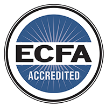Estate Planning FAQ
Estate Planning Basics
What is an estate?
Though the word may imply wealth, “estate” is simply the term for the possessions you leave behind at your death. This includes material assets like your home or other real estate, business interests, bank accounts, vehicles, retirement savings, life insurance, collectibles, and personal belongings.
Who needs an estate plan?
An estate plan is important for every adult regardless of age, income or marital status.
How is an estate plan different from a will?
An estate plan is more comprehensive than a will and provides greater protection for you, your assets and your heirs. It allows you to plan not just for death, but also in the event of your disability. Also known as a last will and testament, a will is part of your estate plan and details your wishes for passing on your possessions at your death. Additionally, if applicable, an estate plan can designate who will care for any minor children you leave behind.
A will does not include other important safeguards that detail your wishes in the event you are critically injured or ill and unable to make decisions for yourself. Estate planning documents that apply to these concerns include the Healthcare Power of Attorney, the Financial Power of Attorney, and the Advance Directive for Health Care.
If desired, your estate plan may also include the creation of a trust, which avoids probate in most circumstances.
What are the parts of an estate plan and what do they do?
A. Last Will and Testament
A legal document that details your wishes for passing on your possessions at your death and names who will care for any minor children (under age 18) you leave behind. This is critical for single parents and for married couples in the event both spouses die.
Your last will and testament also includes your selection of a Personal Representative (also known as an Executor) for your estate. After your death, your Personal Representative will hire an attorney to file your will in probate court, so that assets in your name can be legally transferred to your heirs and other beneficiaries.
Without a will, the state will decide who inherits your belongings and who raises your children.
B. Health Care Power of Attorney
A legal document that grants authority to an individual you choose to act on your behalf regarding health care matters in the event you become incapacitated and cannot make decisions for yourself. This authority is typically given to a spouse or family member. The Health Care Power of Attorney allows this person to access your medical information, work with your doctors to prepare a plan of care, and perform other important tasks on your behalf.
C. Financial Power of Attorney
A legal document that grants authority to an individual you choose to act on your behalf regarding financial matters in the event you become incapacitated and cannot make decisions for yourself. This authority is typically given to a spouse or family member. The Financial Power of Attorney allows this person to pay your bills, access your bank accounts, and perform other important tasks on your behalf.
D. Advance Directive for Healthcare (“Living Will”)
A legal document that allows you to specify your wishes for end-of-life issues related to the use of life support, ventilators, feeding and hydration tubes, and resuscitation techniques like CPR. An Advance Directive for Health Care also allows you to provide instructions about organ donation.
What is a Personal Representative?
Also known as the “Executor” of your estate, a Personal Representative is the individual you assign in your Last Will and Testament to oversee the distribution of your possessions in accordance with your wishes. This person is often a spouse, adult child or other trusted friend or family member.
What is probate?
Probate is the legal process that your beneficiaries must go through in order to transfer ownership of your assets after you have passed away. This includes retitling possessions like homes, vehicles and bank accounts, as well as paying any outstanding debts and taxes.
In many states, probate is a court-supervised process that may be costly and time consuming. A well-crafted estate plan that includes a trust may allow your beneficiaries to avoid probate.
Estate Planning With WatersEdge
What is the cost of creating or updating my Estate Plan through WatersEdge?
There is no cost for WatersEdge estate planning assistance, though the attorney who drafts your documents will charge a fee for his or her services. If you leave a qualifying gift in your plan, WatersEdge will reimburse up to $500 in legal fees. Depending on the complexity of your estate plan, this reimbursement may cover some or all of the fees associated with creating or updating your plan. Most estate plans created through WatersEdge are free after reimbursement.
Am I required to leave a gift to ministry if I create or update my Estate Plan through WatersEdge?
Our purpose is to financially empower donors and ministries to transform lives with the Gospel. If you are not interested in leaving a gift to ministry, we can refer you to an attorney who will guide you through the estate planning process.
How long does the estate planning process take?
Most individuals and families complete the estate planning process in 4 to 8 weeks, but it can be expedited under special or emergency circumstances. Please contact the WatersEdge estate planning team at 800-949-9988 or estateplan@WatersEdge.com if you have an urgent need to create or update an estate plan.
Does WatersEdge draft my estate planning documents for me?
No. A member of the WatersEdge estate planning team will guide you through the estate planning process and educate you about the options that may be best for your and your family’s needs. Once this process is complete, we prepare your information and send it to an attorney who will draft the documents of your estate plan.
What if I don’t have an attorney to draft my estate planning documents?
We will provide you with a list of trusted estate planning attorneys who can assist you with drafting your documents.
Do I have to be a member of a Southern Baptist church to create or update my estate plan through WatersEdge?
No. Membership in a church affiliated with the Southern Baptist Convention is not required to create or update an estate plan with WatersEdge. However, in order to receive legal fee reimbursement from WatersEdge, a charitable gift must be included in your estate plan for one of our ministry partners.
Will the personal information I share in the estate planning process be kept private?
Yes. Outside WatersEdge staff, your personal information is shared only with the attorney selected to draft your estate planning documents. WatersEdge does not share, sell or distribute your personal information with any other party.
Is my personal information safe if I choose to use the online Estate Planning Guidebook?
Yes. Your personal information is encrypted throughout every stage of the online process.
Updating Your Estate Plan
How often should I update my estate plan?
We recommend reviewing your plan every 5-10 years. However, there are also specific life events that may warrant a revision, such as marriage, divorce, the birth of a child or grandchild, the death of a spouse, child or grandchild, or when your children are no longer dependents.
What if I already have an estate plan with WatersEdge but want to review or change it?
Please make an appointment or contact our estate planning team at 800-949-9988 or estateplan@WatersEdge.com. We will provide you with a copy of your current plan and assist you with any updates.
Can WatersEdge help me update my estate plan if it was created through another attorney or organization (not affiliated with WatersEdge)?
Yes, as long as your revision includes a qualifying charitable gift to a partnering ministry. This makes your updated estate plan eligible for legal fee reimbursement from WatersEdge.
Legal Fee Reimbursement
How do I qualify for legal fee reimbursement?
WatersEdge will reimburse up to $500 of your legal fees if your estate plan includes a gift to WatersEdge, at least 50 percent of which is for the benefit of a partnering ministry of your choice.
- If you wish to specify a percentage of your estate as a gift to ministry, then the percentage must be at least 10 percent of your estate to qualify for legal fee reimbursement.
- If you wish to specify a specific dollar amount from your estate as a gift to ministry, then the amount must be $50,000 or greater to qualify for legal fee reimbursement.
Ask the WatersEdge estate planning team about other giving options that can qualify your estate plan for legal fee reimbursement, including gifts made through a retirement account or life insurance.
What is the maximum reimbursement provided? What if my legal fees exceed the maximum?
WatersEdge will reimburse up to $500 in legal fees associated with creating or updating your estate plan. This covers all or most of the fees associated with most plans. However, for more complex estate plans, it is common for legal fees to exceed the $500 reimbursement threshold. In this case, you are responsible for paying the difference.
What if the ministry or organization I want to support is not listed as a WatersEdge ministry partner?
Not all WatersEdge ministry partners are listed on our website, so you may need to ask our estate planning team. We frequently add new ministry partners, including some like-minded ministries not affiliated with the Southern Baptist Convention. However, if you desire to support a ministry or organization whose purpose or ideology conflicts with Southern Baptists’ core beliefs as expressed in The Baptist Faith and Message, we may be unable to assist you.








